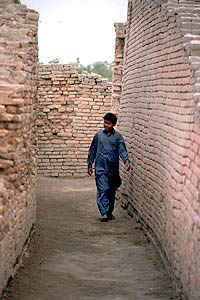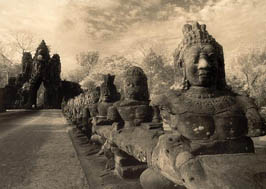 ASU faculty have considerable expertise in the archaeological study of urbanization and early social complexity. Fieldwork projects span the globe from the Near East to the New World. We study complex and urban societies from a diverse array of methodological approaches, including excavation of residential and public features, regional survey and intensive site-surface analyses, bioarchaeology, systems modeling, and artifactual analyses of trade, craft production, and social processes from identity to ritual to subsistence. Many of our publications are recognized as significant contributions to the archaeology of ancient social complexity and urbanism.
ASU faculty have considerable expertise in the archaeological study of urbanization and early social complexity. Fieldwork projects span the globe from the Near East to the New World. We study complex and urban societies from a diverse array of methodological approaches, including excavation of residential and public features, regional survey and intensive site-surface analyses, bioarchaeology, systems modeling, and artifactual analyses of trade, craft production, and social processes from identity to ritual to subsistence. Many of our publications are recognized as significant contributions to the archaeology of ancient social complexity and urbanism.
The process of urbanization is a particular strength and focus of archaeology at ASU. The School manages the Teotihuacan Archaeological Laboratory where numerous analyses of this Mesoamerican metropolis are carried out. Our program is particularly strong in research on ancient Mesoamerican urbanism and in bioarchaological research on urban populations. Our archaeological work on urbanization is integrated with other faculty on campus, including ethnologists, geographers, systems modelers, architects, and urban planners; the “Urban Societies” theme of the School helps bring together these and other diverse approaches to the worldwide phenomenon of urbanism.
Key Faculty:
Brenda J. Baker
Ceorge L. Cowgill (Professor Emeritus) 
Steven E. Falconer
Kelly J. Knudson
Thomas Morton (School of Architecture and Landscape Architecture)
Ben A. Nelson
Charles L. Redman
Rachel E. Scott
Michael E. Smith
Barbara L. Stark
Christopher M. Stojanowski
Aribidesi Usman (Dept. of African and African-American Studies)
Sander van der Leeuw